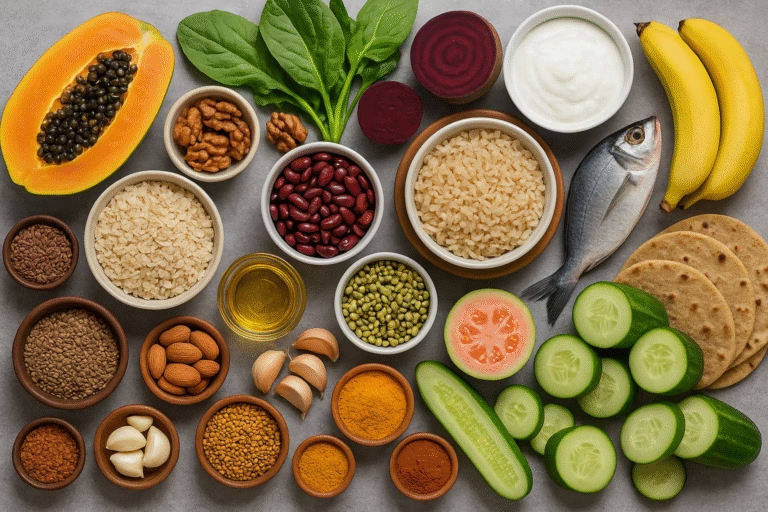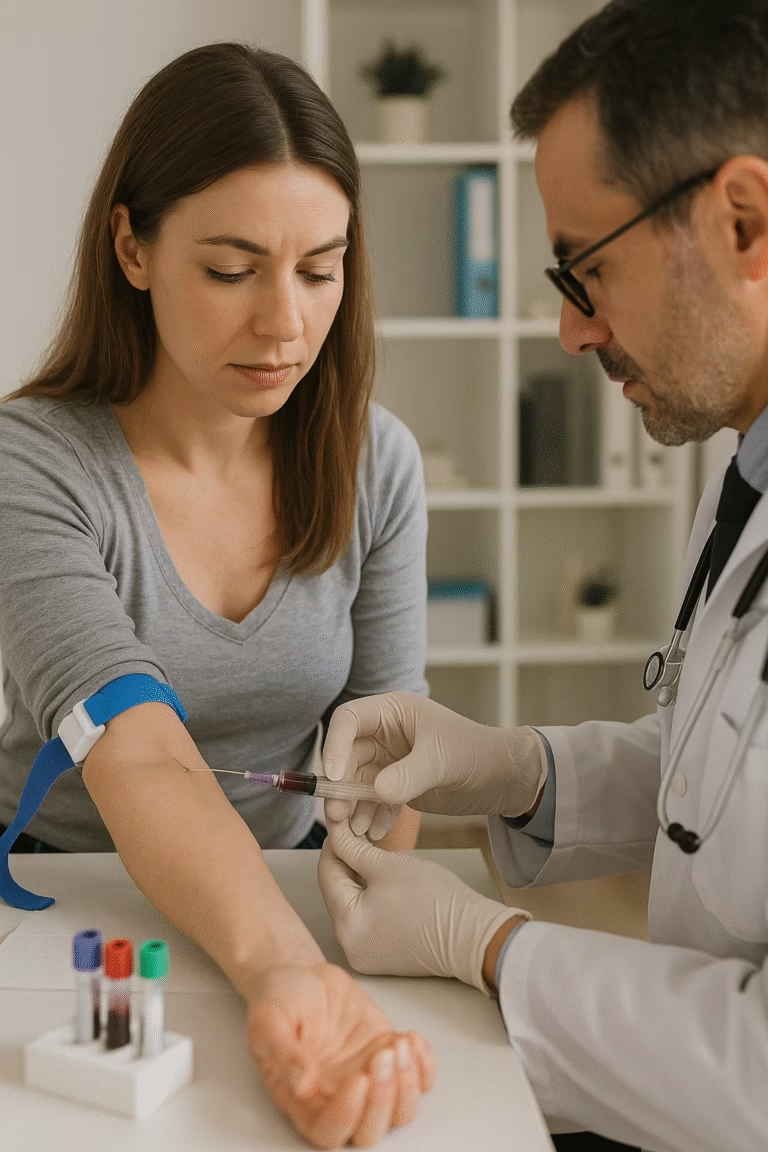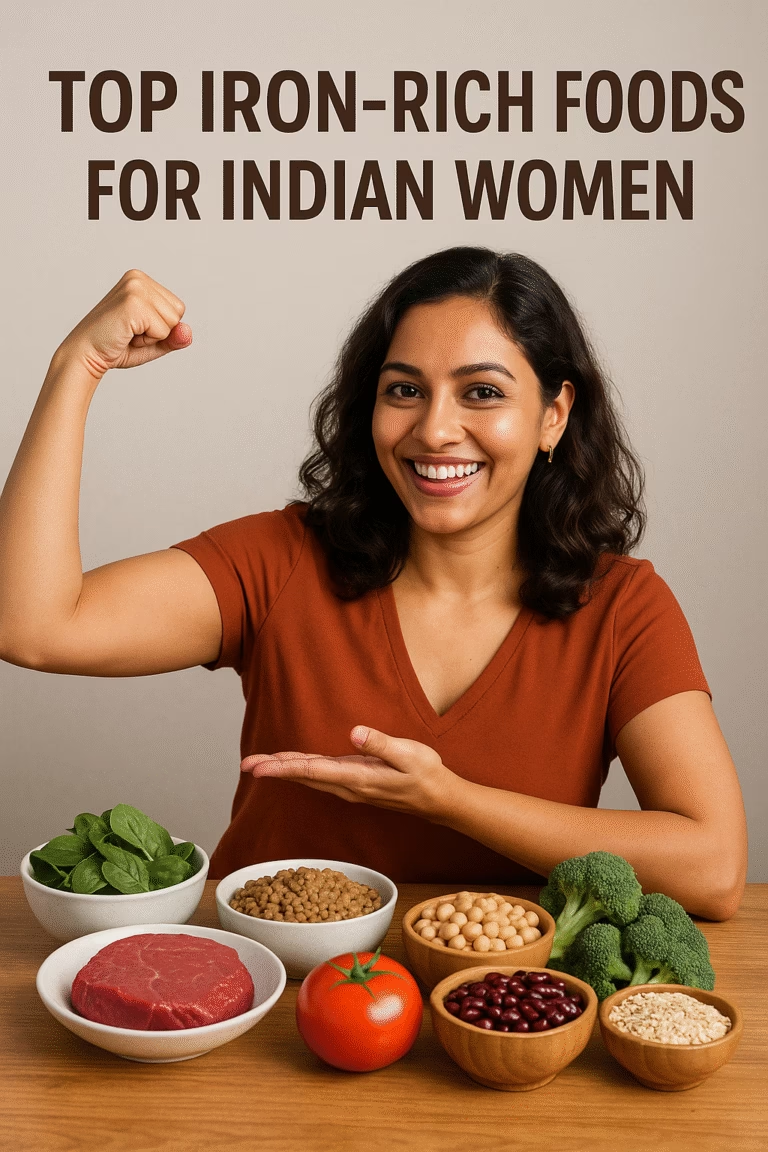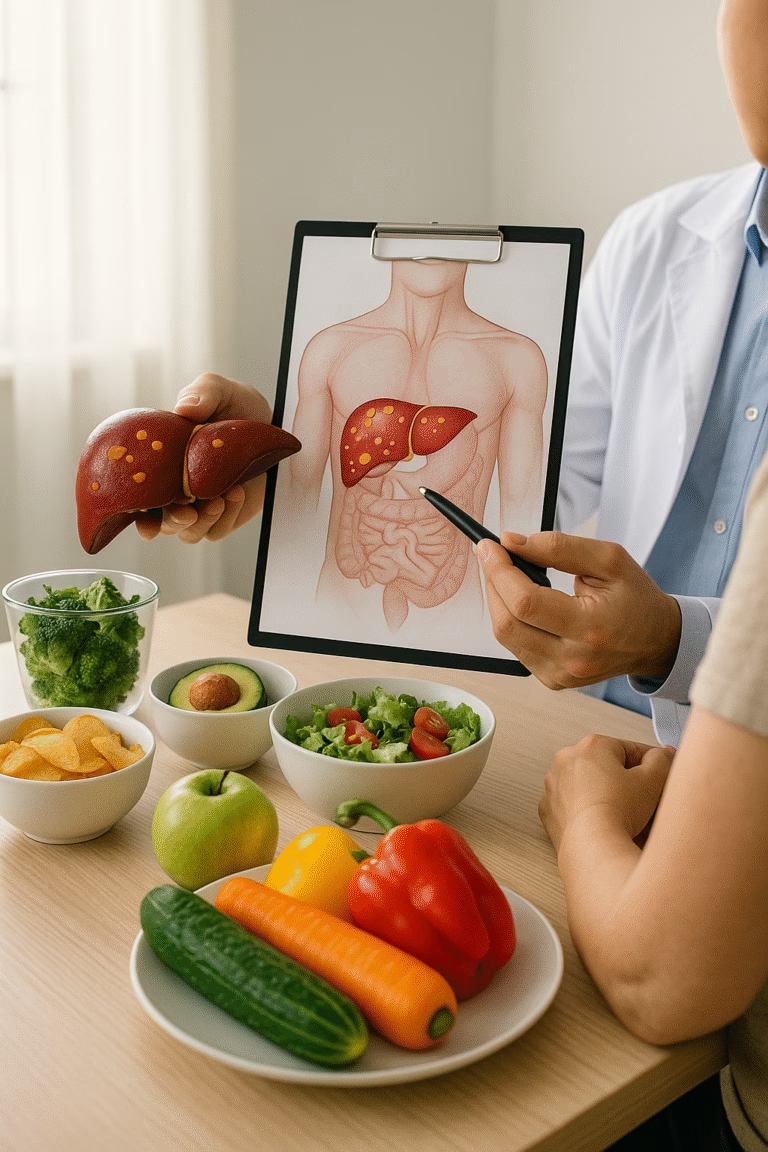
Fatty liver disease is becoming increasingly common due to our dietary and lifestyle habits. They are considered a silent epidemic, as many people are unaware that they have it. Although it may not cause any obvious symptoms initially, it can later lead to severe health problems. Preventing fatty liver is easier than treating it, and our diet plays a major role in it.
What is fatty liver disease?
Fatty liver disease is a condition where excess fat accumulates in the liver, impairing its functions. The liver is a vital organ responsible for the metabolism of carbohydrates, proteins, and fats, and the detoxification of toxins in the body. It can later progress to major diseases like cirrhosis (severe scarring), liver failure, and even liver cancer if left unchecked.
There are two types of fatty liver disease: Alcoholic Fatty Liver Disease (AFLD), caused by heavy alcohol use, and Nonalcoholic Fatty Liver Disease (NAFLD), often associated with obesity, diabetes, and high cholesterol.
Why does diet matter for liver health?
The liver manages food by metabolizing, storing, and distributing nutrients. However, when food intake becomes excessive, the liver converts the excess food into fat, which accumulates in the liver, leading to major health issues, such as liver disease.
The patients with NAFLD are often observed to have a high-calorie diet, especially including carbohydrates and fats. The increased consumption of soft drinks, which are the leading source of added sugar, is also observed in NAFLD patients. A balanced diet rich in fibre, antioxidants, and healthy fats can protect the liver and even cure the early stages of fatty liver. Hence, a combination of dietary modification and increased physical activity serves as a key to preventing NAFLD.
Foods that help prevent fatty liver
Fatty liver can often be prevented through the right food choices. Here are some liver-friendly foods to include in your diet.
1. Greens
Green Vegetables are rich in dietary fibers, nutrients, and antioxidants. The phytochemicals and bioactive compounds present in plant-based foods play a key role in preventing liver diseases. Regular consumption of greens can reduce inflammation in the liver and support its functions.
Some of the best options to include are
- Spinach is rich in iron and antioxidants.
- Kale – it is a good source of vitamins A, C, and K.
- Broccoli – promotes detoxification.
- Methi (fenugreek leaves) – reduces fat buildup in the body.
2. Lean proteins
A protein-rich diet is ideal to reduce the intake of excess food and calories. They provide amino acids, which help the liver to heal naturally and maintain its muscle mass. Lean protein lowers the risk of fat accumulation in the liver by stabilising blood sugar.
Some of the best lean protein sources include:
- Fish (salmon, sardines, tuna) – a great source of healthy omega-3 fats
- Skinless chicken or turkey – they contain low, unhealthy fats
- Egg whites – they are packed with protein without extra cholesterol.
- Legumes and beans (lentils, chickpeas, beans) – a rich source of plant-based protein with fibre
- Low-fat dairy (curd, paneer, milk) – they support gut and liver health.
- Tofu and soy products – a good vegetarian alternative for protein
3. High fibre foods
Practicing a fibre-rich diet helps us control body weight and lower cholesterol, which play a major role in preventing fatty liver. The fibre protects the liver by improving digestion and reducing fat absorption, which lowers the risk of fat buildup in the liver.
Some of the best high-fibre options to include are:
- Oats – they contain beta-glucan, which reduces cholesterol and improves liver function
- Whole grains (brown rice, quinoa, barley) – they are packed with fibre and nutrients.
- Legumes (beans, lentils, peas) – they are a rich source of both fibre and protein.
- Fruits (apples, pears, berries) –they are rich in soluble fibre and antioxidants.
- Vegetables (carrots, sweet potatoes, beets) – they help in digestion and liver detoxification.
Foods to avoid for healthy liver function
- The highly processed foods like biscuits, snacks, and canned foods often contain unhealthy fats, added sugar, and other preservatives, which affect the liver.
- High intake of alcohol can make the liver overwork, leading to the accumulation of fats in the liver.
- Soft drinks or high-sugar drinks can cause fat buildup in the liver, leading to insulin resistance.
- Refined carbs like white bread can also lead to increased liver fat.
Lifestyle Beyond Diet
- Regular Physical Activity: Regular exercise helps the body burn excess fat in the liver Maintaining a Healthy Weight: Being overweight can cause excess body fat, which can lead to NAFLD
- Limiting Alcohol Consumption: Alcohol is directly toxic to the liver and can worsen fatty liver.
- Staying Hydrated: Water supports metabolism and helps the liver in detoxification.
Sleep and Stress Management: Poor sleep and chronic stress raise cortisol and blood sugar.
Conclusion
In summary, preventing fatty liver doesn’t require any drastic measures. Making small changes in your day-to-day life can help you prevent fatty liver and improve your overall well-being. Including fibre-rich foods and avoiding highly processed, unhealthy fats from your diet can significantly lower the risk of getting liver diseases . Small, consistent steps today can make a big difference in the future. A balanced diet and regular movement are the best medicine for your liver.
Frequently asked questions
What is the ideal diet to prevent fatty liver?
An ideal diet to prevent fatty liver focuses on balanced, whole foods instead of processed foods. Including fruits, vegetables, whole grains and reducing the intake of alcohol and processed foods can lower the risk of fatty liver to a certain extent. This diet not only prevents fatty liver but also helps in maintaining overall metabolic health.
How much weight loss is needed to improve fatty liver?
Research suggests that losing around 5–10% of your body weight can reduce fat buildup in the liver and improve liver function.
Can exercise alone lower the risk of fatty liver?
Exercise helps to reduce the buildup of fats in the liver, but it works better when combined with a balanced diet. Together, they are more effective than exercise or diet alone.
Is fatty liver treatable during pregnancy?
Non-Alcoholic Fatty Liver Disease (NAFLD) can often be managed safely during pregnancy with dietary changes, light doctor-approved exercise, and regular monitoring.
How can fat in the liver be dissolved?
There isn’t a single food or pill that directly “dissolves” fat in the liver. Weight loss, a balanced diet, and physical exercise can reverse fatty liver in its early stages.
Discover more from The Vigyan Chronicles
Subscribe to get the latest posts sent to your email.



